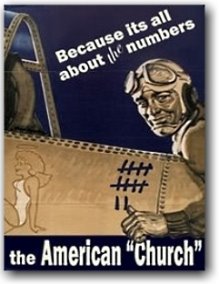By S. Michael Durham
And you have forgotten the exhortation which speaks to you as to sons: "My son, do not despise the chastening of the LORD, Nor be discouraged when you are rebuked by Him; For whom the LORD loves He chastens, And scourges every son whom He receives." If you endure chastening, God deals with you as with sons; for what son is there whom a father does not chasten? But if you are without chastening, of which all have become partakers, then you are illegitimate and not sons. (Hebrews 12:5-8)
What distinguishes chastisement from consequences? Is there a difference? If you run a stop sign and get hit by another car, is that discipline, or consequences, or both? In other words, is the pain from the accident God rebuking you, or is it the natural results of not obeying traffic laws, or could it be both?
Let’s look at the “it’s both” answer. Some will say that the accident is the consequence of not stopping at the intersection, but God can use it to bring correction about either your poor driving skills or if there is some other area of your life where you are not obeying Him. True! The Lord can use it as discipline for something unrelated or for poor driving skills. But that really doesn’t answer our question: Is there a difference between chastisement and consequences? The “both” answer simply acknowledges that God can use consequences as a form of discipline.
Here’s another question to think about—if an unbeliever refuses to stop at a stop sign and is involved in an accident, is this God’s chastening?
How could it be since the Bible says, “If you endure chastening, God deals with you as with sons; for what son is there whom a father does not chasten? But if you are without chastening, of which all have become partakers, then you are illegitimate and not sons”? God disciplines all His sons, but He does not discipline those who are not sons. So, in the case of unbelievers, the automobile accident can’t be chastening, but nothing more than the natural consequence of not obeying a stop sign in busy traffic. Why, in the case of a believer, could it be discipline? It isn’t. And that’s the point. Consequences and chastening are two different things. In other words, something else is needed to make a consequence divine chastening.
What then would make the accident chastening? The instruction of God. It is God’s instruction that turns a natural consequence into a means of correction. This instruction is the work of the Father’s love toward every one of His children. Unbelievers are completely without this loving correction and instruction.
There are three reasons why this distinction is important. First, discipline distinguishes between the Christian and non-Christian. As already stated, God only corrects and instructs His children. That is not to say that non-Christians are never confronted by God because they are. But the confrontation is not chastening. Only true sons are chastened.
The Father of mercy teaches His children truth. What good is a spanking from a father if he does not use it to instruct the erring child? All the spanking will do is embitter the child because it will not see it for anything but punishment. It is the instruction of the father that turns punishment into discipline. The judicial system exacts revenge from lawbreakers. Parents are not to get revenge, they are to correct; and correction cannot occur without wise instruction. The sinner is without this loving instruction. So often, that is why it seems that the wicked prosper and get by with their evil actions. They are without the Spirit’s instruction turning whatever pain into a blessing.
The second reason to differentiate natural consequences from chastening is show that not all bad things are disciplinary. It does not mean that I am being chastened if I accidentally fall off a ladder and break an arm. It means the natural consequence of me trying to defy gravity by falling from a ladder was a broken bone. That’s all! We must be biblical. The Lord was very upset with Job’s so-called comforters because their theology was essentially this: good things happen to good people and bad things happen to bad people. According to them, Job had to have sinned and God was punishing him for it.
The truth was Job hadn’t sinned and God was not punishing him. We live in a fallen world, a world where perfection does not exist. If you miss a stop sign and run into the path of another car you are naturally going to have problems. You shouldn’t think every time something bad happens that God is necessarily trying to get your attention. Life is simply a few days of trouble.
If the Lord should use a natural accident to teach you and bring correction into your life, well then, very good. But don’t see every problem as God’s displeasure. This leads to my final reason why we should note the difference between natural consequences and chastening—most discipline from the Lord is not correctional, but either character building and instructional.
Stay tuned. I will continue this in part 2 in a couple of days.
Wednesday, March 4, 2009
Subscribe to:
Post Comments (Atom)






amazing enlightenment.
ReplyDeleteThanks for the insight